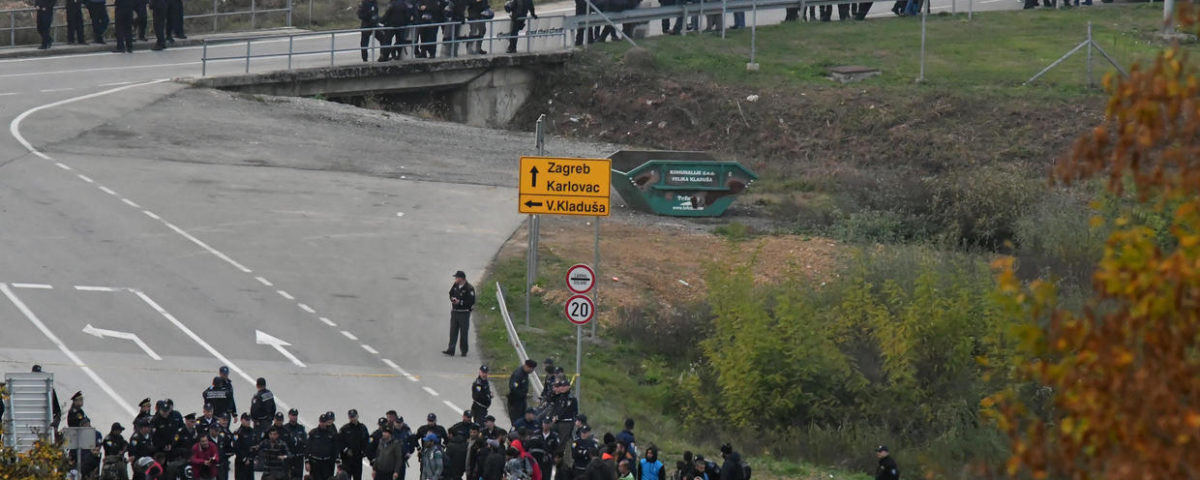
Lewis Hamilton donates £262,000 as F1 ace calls on fans to aid Australian bushfire efforts
January 9, 2020
Eclipse 2020 LIVE stream: Watch tonight’s Penumbral Eclipse live online HERE
January 10, 2020
Taking up the EU’s rotating presidency for the first half of this year has cast an uncomfortable spotlight on Croatia for its heavyhanded tactics against migrants trying to enter the bloc.
Allegations of border police abuses — including breaking migrants’ mobile phones and confiscating shoes and money, as well as illegal pushbacks over the border — have dogged Zagreb for the past three years.
The issue has taken on greater importance now with the EU presidency and as Europe, which faced a massive immigration emergency in 2015, experiences a fresh uptick of arrivals and an internal row over how to alleviate the burden on member states along its external borders.
Croatia, one of those rim countries, is not confronted with the same numbers as Greece and Italy. But as the last member to join the EU, in 2013, it is keen to become part of the passport-free Schengen zone.
To do that, it has had to show it can effectively police its borders with non-EU neighbours Serbia and Bosnia. It has done that to the satisfaction of the European Commission, which three months ago recommended Croatia can join Schengen, but that still needs final approval from all EU capitals.
– ‘Allegations’ dismissed –
Prime Minister Andrej Plenkovic this week told reporters that getting Schengen area status for Croatia was one of his top priorities.
Migration, he said, was “a key issue in the EU” that often informed the various member states’ positions on other matters, such as the bloc’s budget and enlargement.
Plenkovic dismissed the accusations of Croatian border police abuses — made by migrants, rights groups and a team of Swiss journalists who reported border pushbacks last year — as unproven “allegations”.
There were a few incidents, he acknowledged, but “there is not a policy or intention. Every single complaint is duly checked.”
However the office of Croatia’s official ombudswoman, which investigates public complaints, said in its 2018 annual report that the interior ministry had “illegally” stopped sending it information on border incidents.
The office said it had received an anonymous letter from one Croatian policeman in March that confirmed the pushback of migrants and the confiscation of migrants’ possessions. Some migrants were beaten by police, the letter alleged.
The ombudswoman’s office told AFP that the next annual report was due to be released in March — in the middle of Croatia’s EU presidency.
– Pakistani migrants –
Other Croatian government officials discounted the allegations made against some of the 6,500 police assigned to protect the borders.
One official said of the migrants: “We are not speaking of minors. They are all men, in their 20s, 30s. They look like military. They have such large numbers, and so you can’t avoid arguments between (them and) police officers.”
Croatian authorities intercept around 1,200 irregular migrants a month trying to enter, according to government figures.
While the 2015 influx was mainly made up of Syrians and Afghans, the biggest group now trying to gain entry — around 500 per month — are Pakistanis. The reasons for that were not clear to the government or non-governmental observers.
Michael Leigh, a European affairs political analyst at the German Marshall Fund thinktank and a former senior European Commission official, said that while it had satisfied its border-guarding criteria for Schengen, “many observers consider that Croatia needs to make considerable further efforts to improve its human rights record especially with regard to migrants to be eligible for Schengen membership”.afp




